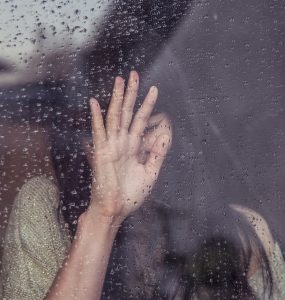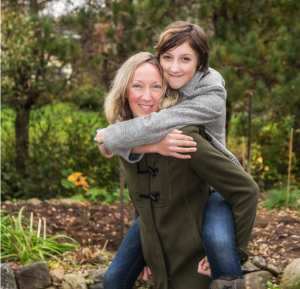
Because of you! And me. And any adult who has noticed that our girls are suffering. If our children are under so much pressure that to hurt themselves seems like a solution to them, then we adults must change the world they are growing up in.
First, what’s going wrong?
Exams are looming, and her predicted grades aren’t high enough to get onto the course she wants. She just can’t get down to her revision and feels like she’s already failed. She takes a knife and scratches angrily at her skin. Then she presses down, and a single drop of blood appears. She draws the knife along her arm and watches as the blood trickles down. She experiences the cutting as a pain she can control, and a feeling of calm descends on her immediately afterwards. But the calm doesn’t last, and the feelings that triggered her to cut herself are still there, and when they overwhelm her she resorts to cutting herself again.
Her Instagram likes are down. Doesn’t matter what angle she takes, her lips are too big, her skin spotty, and she hates her hair. If only she were thinner, she’s sure she’d feel better. She misses breakfast and cuts back on other meals. Friends compliment her on her weight loss and she feels good, temporarily. But then she needs to lose more weight for that feeling again and she starves herself. Everyone else seems to be coping so much better, she’s sure there must be something wrong with her that she feels so rubbish. It feels good to punish herself by not eating; besides her food is something she can control in a world that feels so out of her control.
Finances are tight even though both parents work. Her mum works shifts and her dad’s often on the road. At first, she liked the extra responsibility and freedom of fixing her own food after school. But recently her friendship group is splintering, and she has no-one to talk to about it; her parents are always busy or tired. She started hanging out at the rec after school, the boys paid her lots of attention there. She didn’t always like what they asked her to do but she felt wanted and that felt good. She got a bit of a name for herself, so they expected more and more but there was no way back, was there?
Her parents fight all the time and now they’ve started to involve her. Home is a horrible place to be, so she stays out later and later. Even though she’s underage she looks older so gets served in pubs. She’s funny to be around when she’s drunk, that’s what the others say. No-one’s trying to get her to take sides at least; she forgets about all that. Until she gets back home that is, but by then she doesn’t care.
None of these girls are unusual. Their problems are common. Sadly, so are their solutions.
So, what can we do to help?
Every girl who self-harms does so because her feelings are overwhelming her. The harming is her best attempt at coping, and it works temporarily, but has to be repeated, and doesn’t deal with the real problem.
Teens really do feel things differently to how we do, or how they did when they were younger. While their brains are changing during the teen years they feel things more intensely. Most haven’t yet got the resources to deal with their strong feelings, so they are going to look for ways to escape them.
This is where we step in
| Understand that teens aren’t failing when their feelings are overwhelming. It’s the vulnerable stage they’re in. | |
|---|---|
|
Stay calm especially when they cannot.
– this means we have to be the adult in our interactions with them, no matter how much we feel triggered.
|
|
|
Don’t preach, advise or minimise.
– they don’t want to be fixed, told what to do or made to feel ridiculous.
|
|
|
Become the caring auntie to those teens you know
– be someone that young people trust will listen and not judge.
|
|
|
Find mentors for your child
– everyone needs someone to turn to who isn’t their parent.
|
|
|
In a peaceful moment, talk about what people do when they’re feeling swamped.
– together you can gather a healthier list of things that work for when the feelings are big, without having to make it all about them.
|
|
|
Hang out with a teen.
– it’s good to know that an adult is choosing to spend time with you; it’s a powerful way of showing them their worth and staying in touch with what’s going on in their lives.
|
|
|
Ease the secrecy and shame
– tell her about how you felt as a teen, perhaps how you messed up, and then what you found that worked.
|
If a fifth of our 14-year-olds are self-harming, how many are stuck in the habit at 15 and 16? And how many of our 13-year-olds are already turning to self-harm as a way of coping? The adults in their lives can make all the difference. And let’s not wait until they’ve already hurt themselves, let’s start building their resilience while they’re still preteens.



No comment yet, add your voice below!